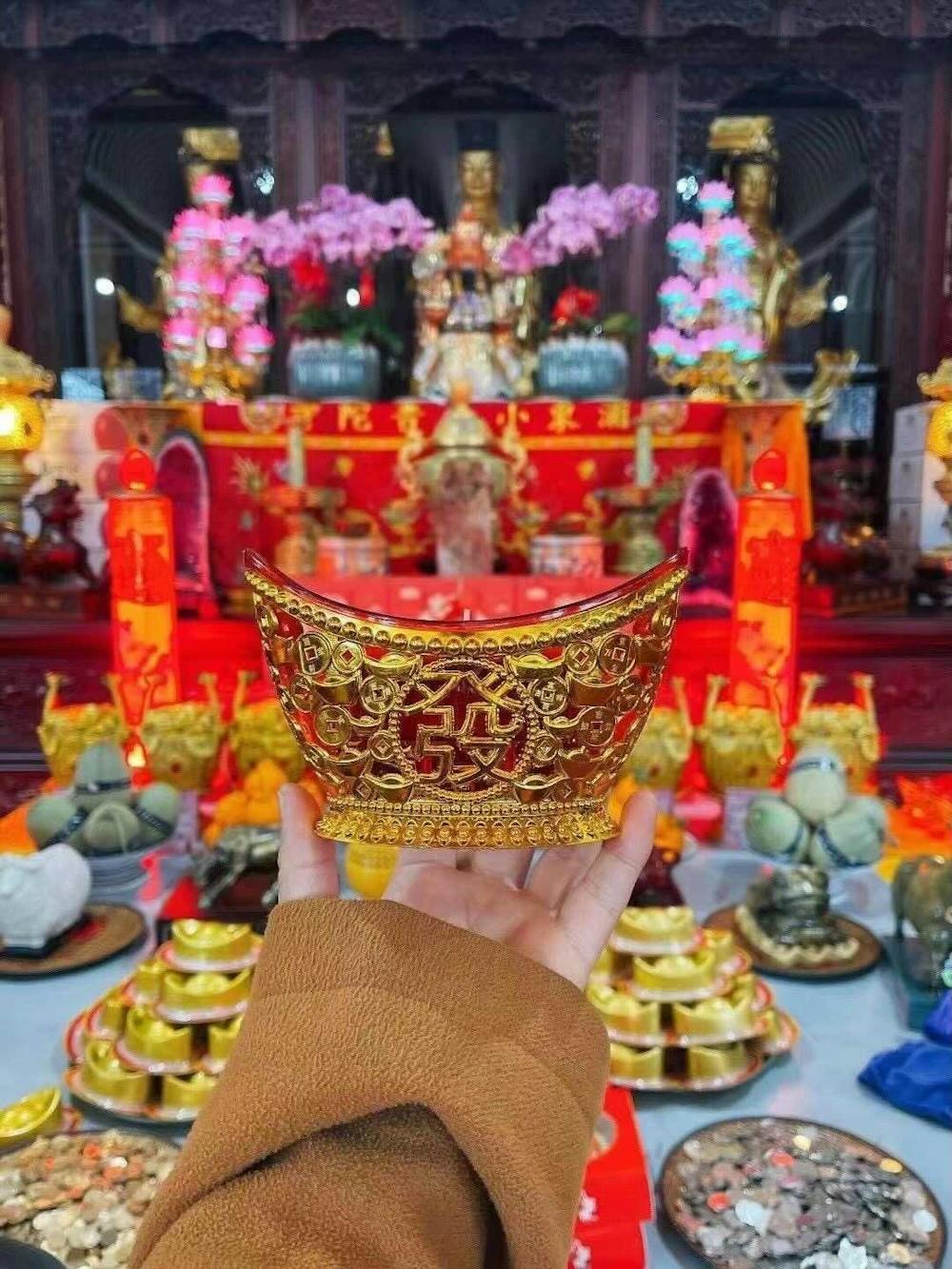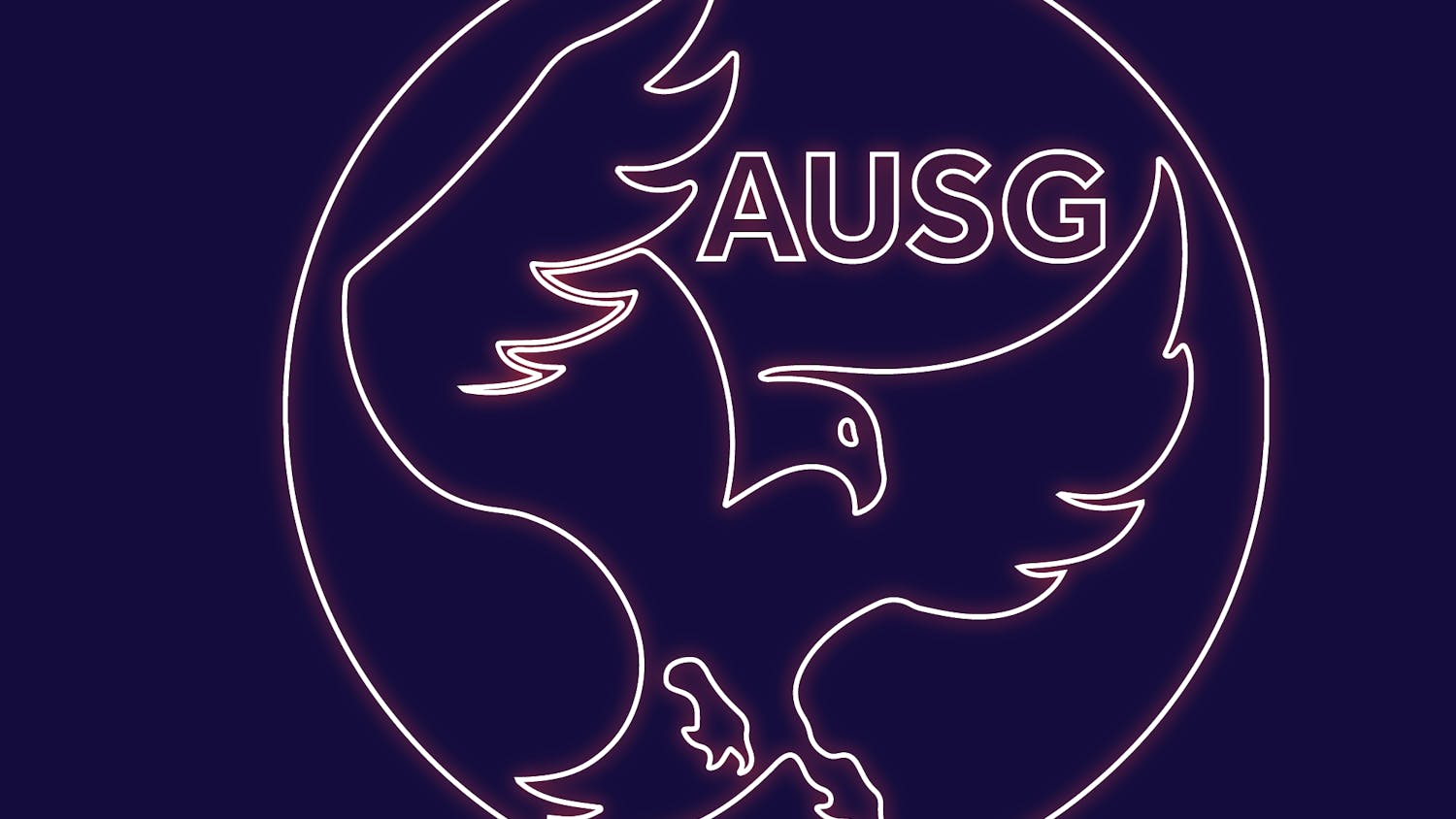On Feb. 12, a quarter of the world ushered in the Year of the Ox and began celebrating the Lunar New Year, a 15-day period of ringing in the restart of the Lunar calendar.
Many countries in East and Southeast Asia like South Korea, China and Vietnam consider it the most important holiday of the year. While this holiday is observed by a multitude of cultures and ethnicities, each one is connected by the cultural importance of food.
For freshman Maddy Park, Lunar New Year is all about the reunion of family. She identifies as Korean, Thai and Chinese, and wishes her family a “Happy New Year'' in a multitude of ways: สวัสดีปีใหม่ (sawadee pee mai) in Thai, 새해 복 많이 받으세요 (saehae bok mani badeuseyo) in Korean and Sing Nee Yu E in Teochew. Her usual Lunar New Year activities include getting dim sum, receiving red envelopes filled with money and spending time with the different sides of her family.
Park usually celebrates Seollal, or the Korean Lunar New Year, with her paternal grandparents. One of her favorite dishes is her grandmother’s Tteokguk, or Korean Rice Cake Soup. This year, however, she’s in D.C. and won’t be physically spending the holiday with her family.
“A huge part of my cultural experience is how food has been the main way that my family portrays love,” Park said.
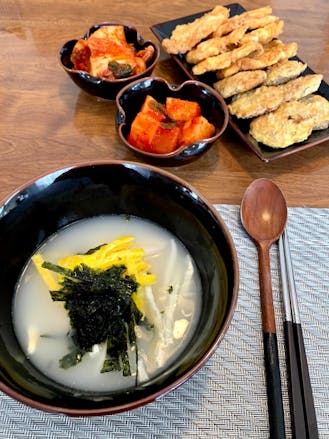
“Food has always been the main way I’ve been able to access my cultures,” Park said. “The food from my cultures reminds me of moments with family, and helps me feel connected to the different holidays.”
It’s been an adjustment for Park this year, who said that celebrating with her family over FaceTime does not feel the same. However, she credits events held by student organizations like the Korean Student Association and the Asian American Student Union for helping her feel a sense of community and family this Lunar New Year.
In China, freshman Yadi Lu recognizes that different dishes have certain cultural meanings for the holiday.
“For most families in China, like mine, Lunar New Year represents a family reunion,” Lu said.
Celebrating from Shanghai this year, Lu said that dumplings are the most common dish for Lunar New Year because “the shape of dumplings resembles ingots, so dumplings represent wealth in Chinese culture.”
“Almost everyone in China hopes to be rich in the new year, so dumplings are typical in this festival,” Lu said.
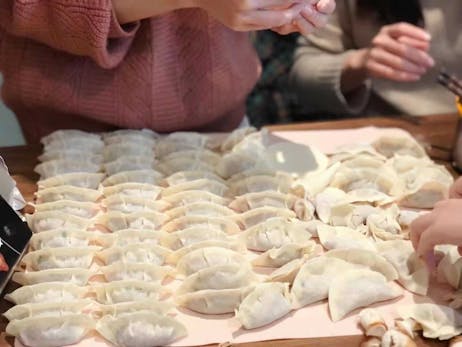
Similarly, fish or 鱼 (yú) has the same pronunciation as the Mandarin word for abundance, and Lu said that they eat fish to ensure an abundance of wealth for the upcoming year. Lu also makes sure to eat noodles and rice cake called 年糕 (niángāo) for the holiday.
“The words Nián and Gāo mean growth and progress for the new year, while the long noodles represent longevity,” she said.
Although Junior Sammie Chai has never physically celebrated with her extended family in Malaysia, she credits her parents for making Lunar New Year festive in her San Diego home. She recalls delivering baskets of oranges to neighbors for good luck, enjoying 年糕 (niángāo) and her mother teaching about the Lunar New Year at her elementary school while passing out red envelopes (called angpao in Malaysia) filled with chocolate coins.
As a Malaysian Chinese, Chai looks forward to the Prosperity Toss (or loh sahng in Cantonese) every Lunar New Year, a dish that is unique to the Chinese diaspora of Malaysia and Singapore. It’s a salad complete with a vibrant array of colorful vegetables, several spices, raw fish and a sweet plum sauce dressing. Almost every ingredient in the Prosperity Toss has cultural meaning, from the use of fish (鱼), to spices like Chinese five-spice, which represents good fortune for the whole family.
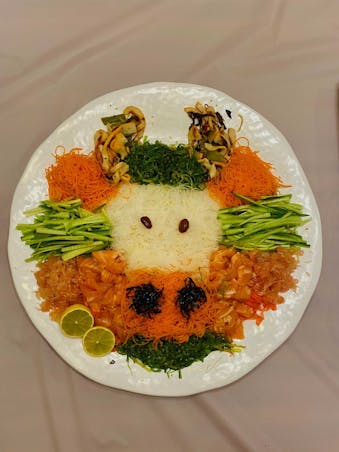
“As we toss in the sweeter sauces, we’d wish each other a sweet and honey-like year ahead,” Chai said. To mix the salad, “everyone grabs a pair of chopsticks to toss the salad as high as we can, signifying a long life.”
With family members trading phrases of good luck with each other while trying to toss the highest, loh sahng is messy and loud, and that’s what makes it fun. Besides, as Chai explained, the bigger the mess, the more ground your fortunes will cover for the upcoming year.
For Park, Lu and Chai, celebrating Lunar New Year means celebrating culture, tradition and identity.
Park sees the holiday as a way to connect with her multicultural family.
“I don’t speak any other language besides English proficiently, so being able to connect with family even with that language gap is really important,” Park said. “Like other Asian Americans who only speak English, we can experience things like food and holidays to help us treasure our family, and cherish our culture.”
Lu noted that the importance of family reunion during Lunar New Year represents Chinese traditions and beliefs like Confucianism.
“We inherit our beliefs from our ancestors, and we must respect and continue that tradition for future generations,” Lu said.
As a child of immigrants, Chai also feels a duty to uphold the tradition of Lunar New Year for future generations.
“One of my biggest fears is unintentionally diluting my culture as I pass it down, and I feel like celebrating Lunar New Year is a way to reaffirm identity while also creating practices that are unique to my family,” Chai said.
Chai recalled how all ethnic groups in Malaysia celebrate the national public holiday together and how she and other Asian/Asian American members of her dance team would get cakes and takeout for the holiday.
For her, Lunar New Year above all else is about community.
“While there’s emphasis on how traditional or authentic we need to be, sometimes you need to override that,” Chai said. “The importance really lies on who you spend your time with during that holiday.”

